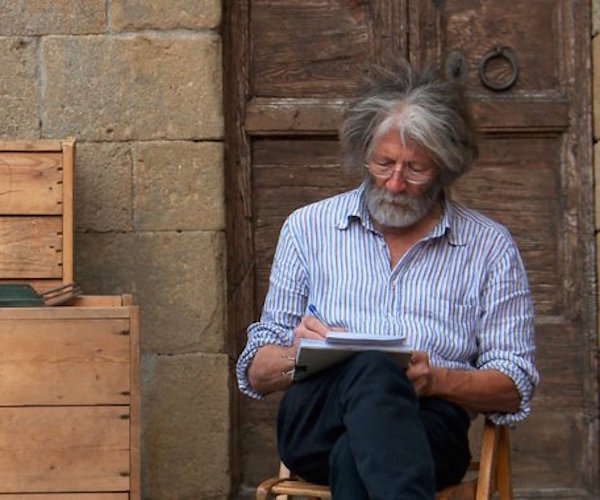Film Review: “Spettacolo” — A Tuscan Town “That Plays Itself”
The landscape and architecture are beautifully photographed, but more important are the array of faces and the music of the voices.

A scene from “Spettacolo.”
Spettacolo – Directed by Jeff Malmberg and Chris Shellen. At the Brattle Theatre, Cambridge, on Monday, April 9 at 7 p.m. as part of the DocYard series.
By Betsy Sherman
Spettacolo, by Jeff Malmberg and Chris Shellen, spotlights a tiny town in Tuscany whose inhabitants each summer perform in an original topical show in which the participants play themselves.
Filmmakers Malmberg and Shellen—he directed the award-winning documentary Marwencol, she produced it—first came across Monticchiello (population 136), the “town that plays itself,” on their honeymoon. They spent six months there (with no additional crew) shooting this fascinating film, which is divided into four chapters, one for each season. Malmberg will be present at the Brattle Theatre screening of Spettacolo, which is part of the biweekly documentary showcase The DocYard.
A montage of clips early in Spettacolo gives a feel for past incarnations of the “autodrama.” Elders of the community, their voices full of emotion, tell of the April 1944 showdown between partisans and fascists that nearly led to a massacre of citizens by the Nazis. A post-war recreation of these events, fashioned into a drama, seems to have been the impetus to chuck the usual (pre-war) costumed summer pageants and instead create an event that’s more vibrant and meaningful. If you’re thinking cutesy “let’s put on a show, kids”—uh-uh. The “Teatro Povero” (Poor Theater), as they call it, is sophisticated fare.
For example, in the autodrama depicted, barbs are aimed at Wall Street. That’s because the citizens of Monticchiello suffer still from the domino effect of the 2008 crash and from continued corruption within the worldwide financial community. There’s a chant that calls out “J.P. Morgan! Lehman Brothers!” and a list of other institutions. Income inequality and gentrification are on people’s minds in Tuscany just as they are in this country.
The filmmakers rarely venture far from the side of Andrea Cresti, the intrepid and wonderfully photogenic painter who has directed the summer play for decades. The film opens in the winter, when Andrea conducts a brainstorming meeting in which participants will decide what is most resonant in the current moment. From the idea, a script will be built. Consensus settles on pervasive financial insecurity, involving not only the banks but also the Italian government, which is slashing funding. This suggests a theme to be explored: the end of the world.
Monticchiello is becoming a town of old people, and the tradition of community participation in the Teatro Povero is eroding. People, especially young people, are too busy (in addition, we learn of a rift that divided the formerly cohesive populace). The region’s future seems to be in tourism and the construction of vacation homes; the double edge pointed out by Andrea and others of his generation is a loss of soul.
As sobering as all this sounds, the movie is not a downer. For one thing, it has great sensual beauty. And there’s so much to admire in the players’ creativity and courage to speak their minds. Although Andrea is fairly stoic, his whimsy comes out in watercolor sketches that depict the thoughts bursting out of people’s heads. The landscape and architecture are beautifully photographed, but more important are the array of faces and the music of the voices. Plus, we learn that the Italian equivalent for “break a leg” is the colorful two-part “In the mouth of the wolf” / “Die, wolf.”
Betsy Sherman has written about movies, old and new, for The Boston Globe, The Boston Phoenix, and The Improper Bostonian, among others. She holds a degree in archives management from Simmons Graduate School of Library and Information Science. When she grows up, she wants to be Barbara Stanwyck.
